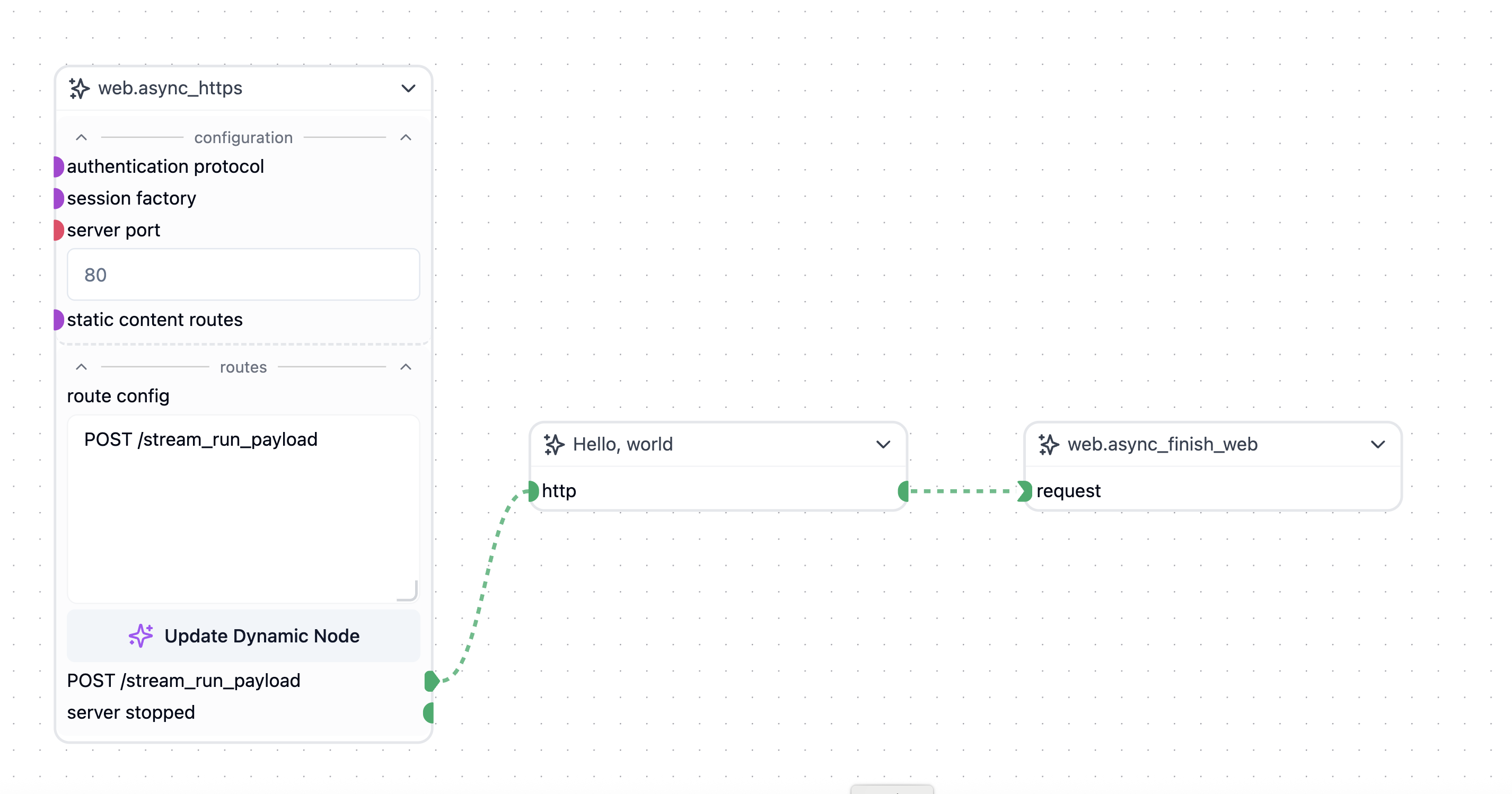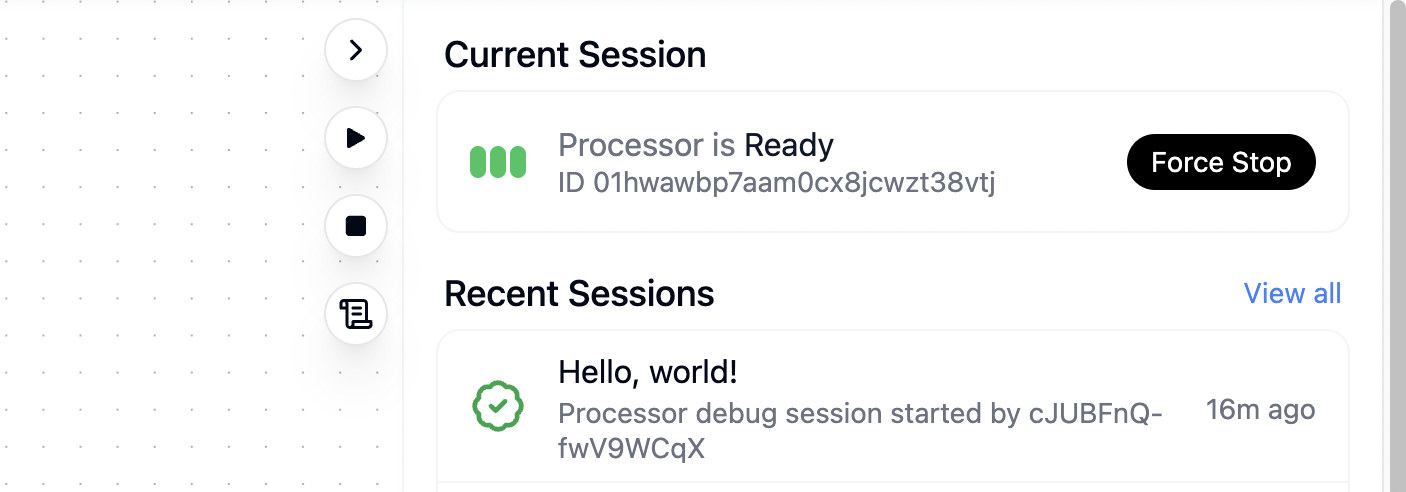
web.async_http node which listens for incoming HTTP requests. It accepts an authentication node and needs to be terminated by a web.async_finish_request node.
Begin by dragging the following nodes onto the workspace:
web.async_httpweb.async_finish_request
Create Node. This node will be used to generate the data that will be streamed to the client. Rename the new code and call it Hello, world.
Connect them according to the image below:

Hello, world-node and commit the following code:
https://<job id>.p.mainly.cloud
The <job id> you find if you click the job indocator in the top right of the workspace screen:
